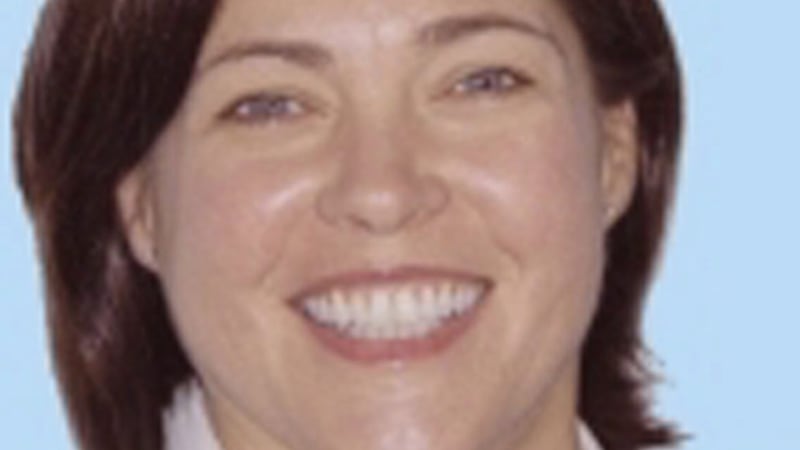PLATFORM
Dr Melissa McCullough
Clinical Ethicist; Academic, Royal College of Surgeons in Ireland
Non-Executive Director, Health and Social Care Board NI
AS we faced in to what would likely be my mother’s toughest battle over the past four years with her terminal and rare neurological disease, I knew 2020 was going to be tough and that we would all need to be strong. And then coronavirus arrived in my mother’s nursing home.
When my mom, Donna, reached the point in October 2019 where she needed 24 hour care, she became a resident of a nursing home in New Jersey. She was relatively young at 73 and had a sharp mind; she knew the food wasn’t great and that she was the most able minded resident living there despite the disease having taken almost all of her ability to move and to help herself physically. She often said, “Thank God I have all my mental faculties”. I used to wonder at that, thinking maybe in the same circumstances I’d have thought that to be torturous.
A week ago, with a fever of 100.6F and a newly developed cough, it emerged that there had been a Covid-19 outbreak in her nursing home. They finally tested my mom on Thursday, and by Sunday when she really wasn’t looking so great on our video call, my sister and I became extremely concerned. For over three weeks since the home had been shut down to all visitors, leaving only essential people with access, I kept reassuring her that she was in the safest place she could be. I truly believed that having taken such precautions so early, my mom was being well protected. Little did we know that those essential people with access, ie the staff, were not fully protected up to this point. In locking down the nursing home, they may have succeeded in protecting family and friends who could no longer visit, but left within its walls an incubator for Covid-19. Sadly my beautiful mom passed away on Tuesday evening in her nursing home surrounded by no one.
Trump’s woefully inadequate (and in my view criminal) handling of the pandemic to date no doubt played a huge role in my mother’s death and the deaths of the 18,000 and counting people who have been savagely taken by this virus in the US alone.
As a daughter, I am heartbroken. As a clinical ethicist, I am deeply troubled. As this pandemic unfolded, I became anxious about so many things—the difficulties that doctors, patients and families would face when making unthinkable decisions on who would be provided ‘life-saving’ treatment with apparent shortages of ICU beds and ventilators, the need for families to understand the importance of discussing their wishes in the event they should become critically ill, the inequitable suffering being experienced by so many including vulnerable, homeless, ethnic minorities among others, the safeguarding and mental health of the many people isolating in their homes with or without family and the increasing unease I have felt with those questioning upon someone’s death “Did they have an underlying condition?”—as if that somehow makes their death more acceptable. Truth is, but for the virus, the vast majority would still be alive today.
Adding to my worry was the increasing accounts by staff and vulnerable residents in care and nursing homes in so many countries, including here in Northern Ireland, who have not been afforded the appropriate personal protective equipment or PPE. When you think about it, we wouldn't expect a fire fighter to fight a blaze without the proper protective equipment or a soldier to hit the battlefield without a weapon and ammunition. Are health and social care providers at this time, in these circumstances, really any different? While acknowledging the shortages of PPE across the globe, we need to be sure to fully acknowledge too the shortage of health and social care providers, our most precious resource. Protecting them with the appropriate gear is AS important in hospitals as it is in care homes and in the community. Our domiciliary care workers, social workers, and care home staff deserve no less protection than front line hospital staff. Care workers in particular, amongst the lowest paid in the health and social care sector here, visit and care for society’s most vulnerable people. They leave their own families so they can take care of ours. They go into numerous homes daily with multiple opportunities to spread the virus, which is especially risky if they are not provided with the appropriate protection. Given that many care workers I have spoken with have often been working without adequate protective gear, this is the reality of what is and has been happening since this outbreak. In fact, I know of many families who have requested their loved one’s carers to stop coming, as they were not wearing protective gear. Are we really to expect their caring commitment to be so strong as to risk their lives in this way? Is it right to put them in such moral distress in asking them to decide whether to protect their clients/patients, their families or themselves? And even if that heroic ask is mercifully answered by them, is it all in vain as doing so may be spreading the virus and sacrificing so many other lives along the way? In these extraordinary times, we must treat our health and social care workers with the dignity and respect they deserve and make the protection of them—all of them equally, a priority.








